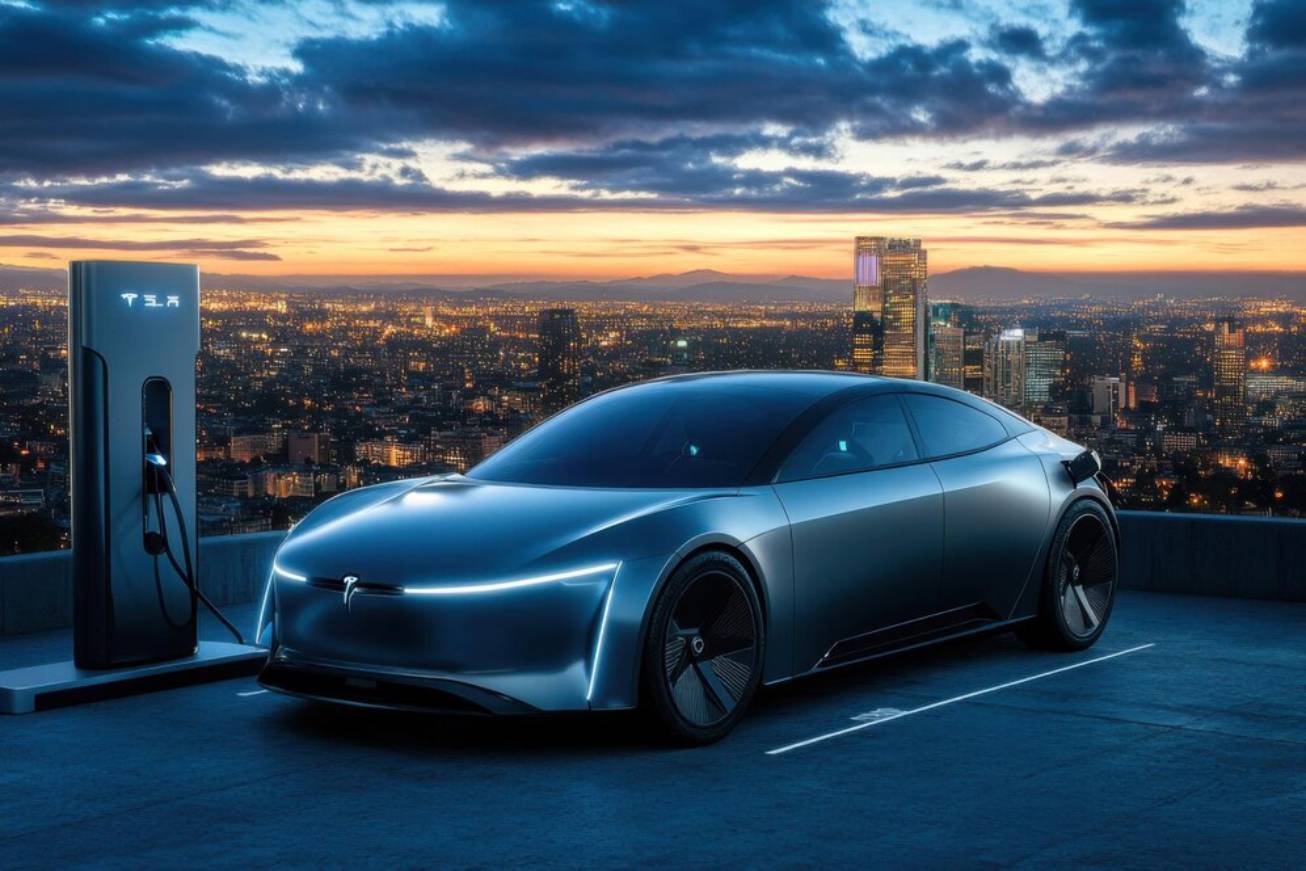The Automobiles & Vehicles Blog

Where to Find the Best Used EV Deals
Thinking about switching to electric, but not quite ready to invest in a brand-new model? You’re not alone. The used electric vehicle (EV) market is booming, offering more choice and better value than ever before. With depreciation hitting new EVs fast, buying second-hand is quickly becoming the savvy way to drive electric — and skip the hefty upfront cost.
But where do you begin? With so many options available online and in showrooms, it can be difficult to know where the real value lies. This guide will walk you through where to find the best used EV deals, highlight the best EV marketplaces, and point you towards the most trustworthy used EV resources.
Whether you’re after peace of mind, top value, or something in between, you’ll leave with the confidence to buy smart and drive cleaner.
Why Buying a Used EV Makes Sense
Lower Costs, Less Risk
Used EVs have become dramatically more affordable in recent years. A three-year-old electric car can cost up to 50 percent less than a new one, even if it still has plenty of battery life and warranty left.
Battery Tech Has Matured
Thanks to better chemistry, thermal management, and engineering, most EV batteries now last much longer than early models. Many retain over 80 percent of their capacity after five or more years.
Sustainable Choice
Choosing a used EV keeps vehicles on the road longer, reduces the need for new manufacturing, and cuts your overall carbon footprint. It’s a win-win for budget and environment.
Where to Buy a Used EV: Top Marketplaces and Sources
Authorised Dealerships and Certified Pre-Owned (CPO) Programmes
For those prioritising peace of mind, CPO programmes are a great starting point. These cars undergo manufacturer-backed inspections and often come with extended warranties.
Examples:
- Tesla CPO: Includes warranty extension, multipoint inspection, and support for the Tesla app.
- Hyundai Promise Approved Used: Provides battery coverage and a minimum 12-month warranty.
- BMW Premium Selection: Offers specialist inspection for electric models like the i3, plus finance and service packages.
Advantages:
- Access to official warranties and servicing
- Battery and software checks included
- App functionality often preserved
Limitations:
- Typically more expensive
- Limited selection depending on stock and region
Online Marketplaces
Online marketplaces provide vast choice and the ability to compare prices quickly across thousands of listings.
Best General Platforms:
- AutoTrader (UK/US): EV-specific filters including range, charging speed, and price.
- CarGurus: Offers dealer ratings, pricing analytics, and real-time market value suggestions.
- Carvana (US): Delivers nationwide, with touchless delivery and a seven-day return option.
- Cinch / Heycar (UK): Easy browsing, quality guarantees, and competitive finance options.
Advantages:
- Broad national reach
- Real-time price comparisons
- Often includes return policies
Limitations:
- May not offer deep EV-specific information (e.g., battery health)
- Extras like charging cables not always included
EV-Specific Marketplaces
Built from the ground up for electric vehicles, these platforms often provide specialist features and insights.
Leading EV-Specific Platforms:
- Recurrent Auto (US): Provides used EV listings with independent battery health reports.
- EV Universe (North America): Offers tailored searches and educational content.
- Auto Trader Electric (UK): A dedicated portal focusing entirely on electric cars.
Advantages:
- More transparent battery condition information
- Helpful for first-time buyers
- Filters designed for EV-specific needs
Limitations:
- Smaller selection compared to general car sites
- Newer platforms may still be building up stock
Independent EV Dealers and Garages

Trusted, local independent garages can be great sources for well-maintained used EVs. These businesses often offer expert diagnostics and aftercare.
Advantages:
- Personalised advice
- Often includes service packages
- Honest pricing and flexible negotiation
Limitations:
- Limited stock
- May not offer manufacturer-backed finance or warranty options
Classifieds and Peer-to-Peer Platforms
These include websites like Facebook Marketplace, Gumtree, Craigslist (US), and eBay Motors.
Advantages:
- Potentially excellent deals
- More negotiation flexibility
- Can include extras like home chargers, spare tyres, and more
Limitations:
- Little to no buyer protection
- No guarantee of battery condition
- May lack service history or paperwork
Advice: Always meet in person, ask for full documentation, and arrange for an EV health check before buying.
Checklist: What to Look for in a Used EV Listing
Use this list to screen online listings or prepare questions for sellers and dealers.
- Battery State of Health (SoH) report available
- Charging cable included (replacement can be costly)
- Real-world range disclosed (not just WLTP or EPA figures)
- Vehicle service history and MOT (or equivalent inspection)
- Charging compatibility (Type 2 + CCS in the UK/EU; J1772 in the US)
- Warranty remaining (both vehicle and battery)
- Software version up to date
Hidden Gems: EV Models That Offer Great Value Used
Here are models that consistently offer excellent reliability and features under £20,000 / $25,000.
| Model | Typical Used Price | Range (Real World) | Charging Type | Highlights |
| Nissan Leaf (40kWh) | £10,000–£17,000 | 130–160 miles | CHAdeMO | Widely available, simple to maintain |
| Hyundai Ioniq Electric | £13,000–£18,000 | 150–170 miles | CCS | Highly efficient, well-built interior |
| BMW i3 (BEV or REx) | £12,000–£19,000 | 100–150 miles | CCS | Premium feel, quirky design |
| Volkswagen e-Golf | £12,000–£18,000 | 110–130 miles | CCS | Golf handling with electric efficiency |
| Kia Soul EV (30kWh) | £11,000–£16,000 | 100–140 miles | CHAdeMO | High roofline, surprisingly fun to drive |
Tips for Scoring the Best Deal
- Compare across platforms — the same car may be listed for less elsewhere.
- Time your purchase — end of financial quarters are prime for dealer discounts.
- Check battery warranty transfer rules — some may only apply to the original owner.
- Ask for the fast-charging cable — not all sellers include it.
- Use tools like Recurrent or LeafSpy to verify battery health independently.
Anecdote: Jack’s Marketplace Surprise
Jack, a commuter from Leeds, found a 2018 Hyundai Ioniq Electric on AutoTrader for £14,500. The seller was a small local garage that specialised in electric cars and included a recent battery health report.
After confirming the car still had five years left on its battery warranty, Jack sealed the deal. He now charges at home and estimates he’s saving over £120 per month on fuel and maintenance.
His takeaway? “Always ask for the battery report. If they hesitate, it’s not the car for you.”
Your Next EV Might Already Be Waiting for You

Buying a used electric car no longer means compromise. In fact, it’s one of the smartest ways to enter the world of zero-emission driving. With more buying platforms, better battery health transparency, and expanding support networks, buying a used EV in 2025 is easier and more rewarding than ever.
Whether you’re buying from a trusted CPO programme, searching online platforms, or heading to a specialist garage, remember this: the key to a great deal lies in knowing what to look for, asking the right questions, and not rushing the process.









